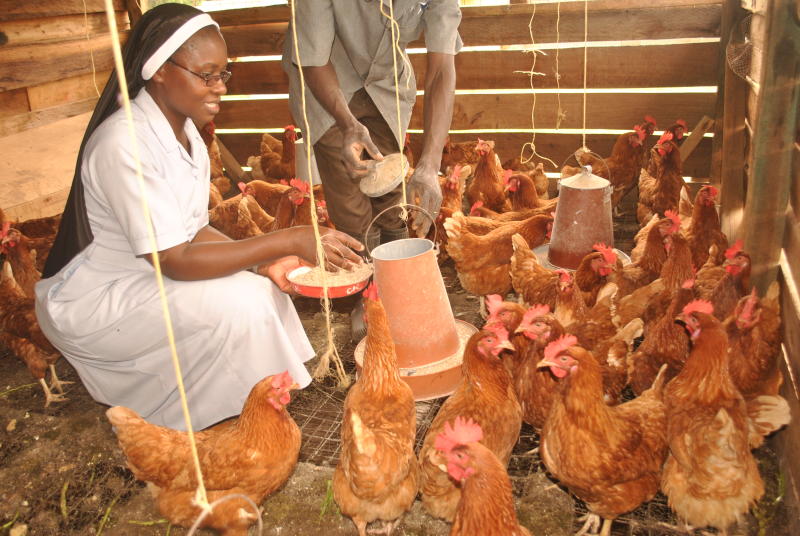×
The Standard e-Paper
Stay Informed, Even Offline

Whenever children at Divine Providence Children’s Home in Kakamega wanted chicken meat or eggs, it forced the management to get them from the market, which was an expensive affair.
The management led by Sister Mildred Nekesa and Sister Linet Kwena took the leap of faith and sent a poultry farming proposal to Safaricom Foundation and after six months later, their prayers had been answered.